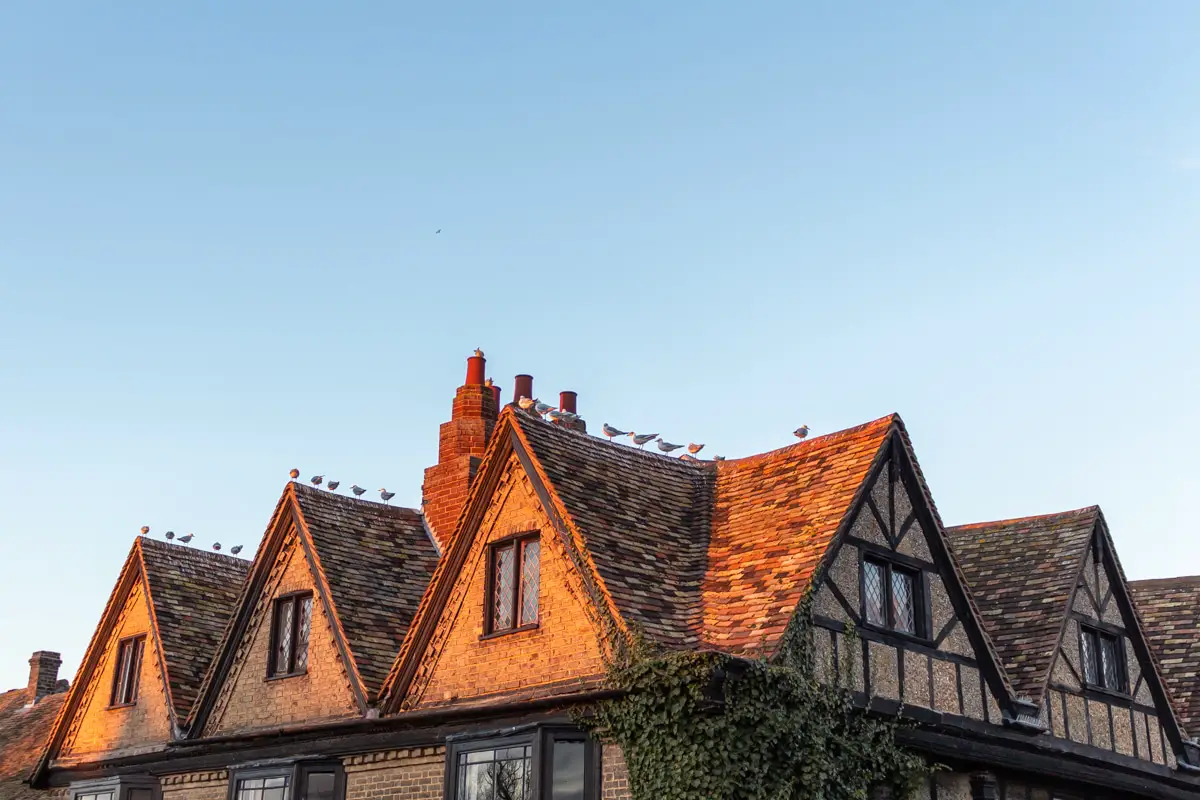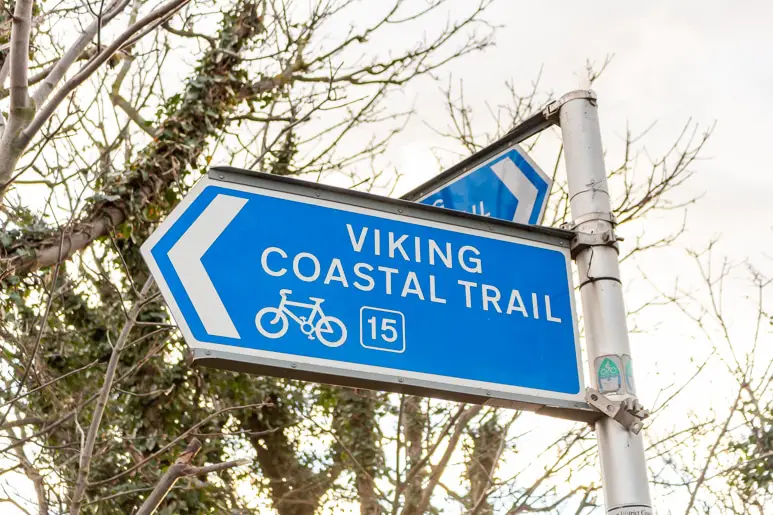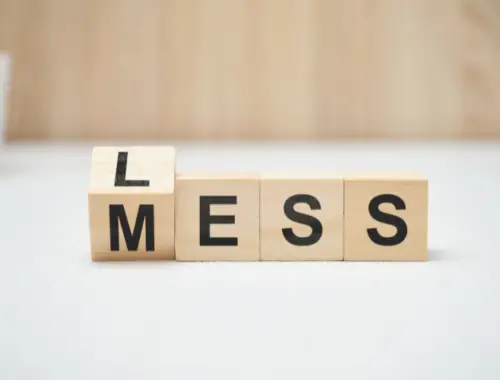I Went On a 7 Day Social Media Detox – Here’s What I Learned
Some of the links in this post are affiliate links which means I earn a small commission if you purchase or book through my link, at no extra cost to you.
Distracted, anxious, not good enough. That’s how I can describe how I was feeling. I was distracted by never-ending content ready to consume, always looking for things I can share on Stories, and feeling defeated when it turned out that I have done nothing Instagram-worthy during the day.
My brain would spin all day long figuring out what else I can post, trying to remember if I have more photos in my archives worth sharing, editing them for hours, and then posting at a time that Instagram told me is the best one for getting the most amount of likes. I’ve been feeling drained and overwhelmed trying to catch someone else’s attention and grow my following – metrics that mean literally nothing, and surely don’t determine your worth.
One day I’ve had enough. My screen time averaged at 1.5-2h per day with 30 – 45 minutes spent on social media, so I can’t say that I was on my phone the entire day, although sometimes it felt like this. I felt like I’m not present in the real life and instead of spending quality time with my family; I was constantly checking what other people are doing.
People I don’t even know.
I became so envy of their lives that I didn’t pursue my plans or goals, because I didn’t believe in them anymore. I kept comparing myself and my goals to those who’ve been in business for years.
This needed to stop. I started watching YouTube videos of people who ditched social media for a month and even though I was very tempted to follow their steps and do 30 days social media cleanse straight away; I didn’t feel anywhere near ready for it. Instead, I decided to do a 7 day social media detox, treat it as a “trial”, and at the end of the week decide how I feel and whether I want to extend it to a month or not.
Navigate to where you want to go:
Does social media detox work?
Yes, although 7 day social media detox might be not enough for some people. If you won’t notice any difference after a week, try extending it for a couple of days or go for a 30 days social media cleanse instead.
Reasons to try 7-day social media detox
Clear your mind
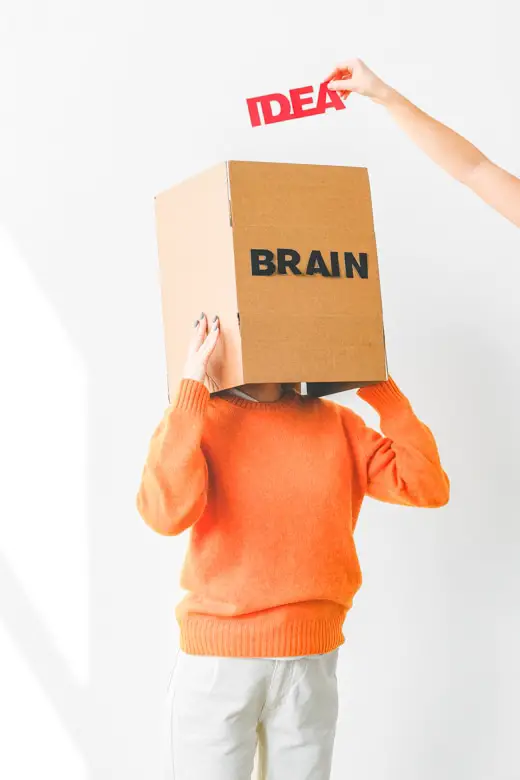
Social media are designed to be addictive. Their primary goal is to suck us in for as long as it’s possible.
How many times have you edited your photos to make them look better and make people jealous? By posting such content we create fake and unhealthy image of each other that also change the way we think about ourselves. By seeing edited images of others, we’re also getting jealous of their lives and want to see more. That’s why it’s becoming more and more difficult to break those habits of mindlessly scrolling through Instagram.
When you decide to change your habits and step away from it for a while, you’ll notice that your mind feels clearer, you’re more confident, and your anxiety has reduced. It’s important for our brains to get bored from time to time. This way they can process all the information we digest and come up with new ideas instead of getting overload.
Take back control of your life
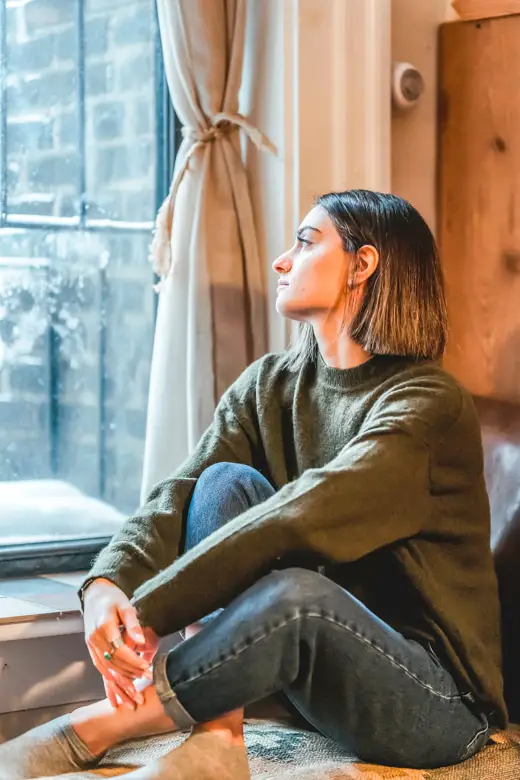
Social media owns us, and I mean that literally. Many people don’t know that those services are free for a reason. We live in an attention economy, and our attention is being sold to companies. Everything we do online leaves digital footprint which is meticulously analysed to present us with the virtual world tailored to us in such way that would keep us on social media for longer.
That’s why Instagram feed isn’t in chronological order, and you might not even remember half of the groups you’ve joined on Facebook. Our feeds show information chosen for us by algorithms, based on our activity on social media.
Facebook and other social media companies mastered the art of manipulating people’s emotions and the way we think. They did that to addict us from their platforms even further and to make it almost impossible to switch to a different social media network.
Actually, the platform just reported that their active users went down at the end of 2021 for the very first time in its 18-year history! So many years of rapid gain of new active users only shows how reliant people became on Facebook.
Internet giants like Facebook and Google pretend to be our best friends, while all they do is wait for us to share every bit of personal information with them. We give them permission to track our every move, share very private life events with them, so they can get to know us better than any person you know in real life. Nothing’s wrong with that. Everyone loves getting personalized recommendations. Is it really okay, though?
Have you ever added a laughing emoji under a silly titled article? Have you ever clicked on it? While we may think that by doing that, we’re showing them that their content is silly, we actually laugh at ourselves, not at them. We only see things we agree with and engage with. Reality tunnel we’re in gets narrowed down with our every move online.
As a result, we end up seeing our version of the world, specifically crafted for us, instead of perceiving the complexity of the world. If we go down the rabbit hole filled with dumb content, we will just get dumber because of the content that will surround us. Escaping it is very difficult, if not impossible.
Benefits of social media detox
Get hold of your free time
People admit that spend hours on social media during that day. It’s common for students to spend as much as 4 hours a day on there! That gives over 28 hours weekly of mindlessly scrolling through social media. Imagine how many things you could get done during that time.
Leave anxiety behind
It’s been proven that social media is often the root of our problems with anxiety and depression. Giving your brain a break could be vital in getting better and feeling less anxious overall.
Have slow, stress-free mornings
Mornings set a tone for the day, so stressful mornings lead to feeling stressed out throughout the entire day.
For years, I used to check my phone straight after waking up. Every time I found a notification message reminding me I have to do something, or checked social media, I was getting nervous. I immediately started comparing myself to others and felt like I was already behind because I didn’t wake up at dawn. Don’t forget about all those horrific news and negative comments we’re getting bombarded on there.
That’s why so many people recommend leaving your phone in the other room and using a simple alarm clock instead. It removes the temptation of checking your phone immediately after you wake up, which we’ll help you have a better morning.
How can I get off social media for a week?
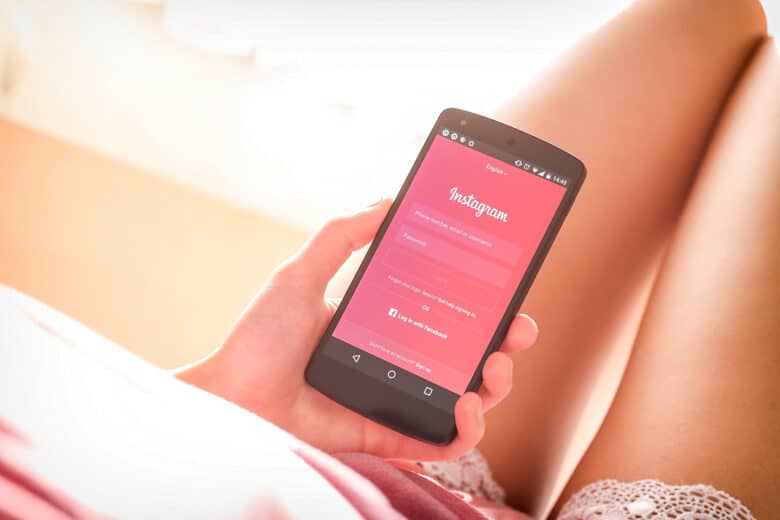
Let other people know of your decision
The first step you should take is informing others about your decision, especially if you communicate with them just through social media. Even though most people won’t notice other absence (harsh, I know), you might want to warn some friends and come up with other ways to stay in touch during this week.
Delete apps and block websites
Deleting apps is more important than you think. Many times we take our phones and we’re looking for social media apps even without thinking about it. When you delete them and find yourself looking for them, just embrace that feeling.
Remind yourself about your conscious decision to ditch social media for a week and think twice before you re-download them. I noticed that even though I was tempted to re-download apps multiple times throughout the week; I decided against it because I didn’t want to break the streak of social media free days and didn’t want to waste my time to set up them.
You can use app like Freedom or Cold Turkey to help you with staying on track. While only Freedom works on mobile devices, both of them are great for blocking websites on Windows or Mac.
Plan what you’d like to do during the free time you’re gaining from ditching social media
It’s crucial to have a list of activities you want to do instead of scrolling through Instagram. Keeping my Kindle nearby helped me a lot with feeling like I’m missing out on not having social media and not being online all the time. Think about hobbies you didn’t have time to pursue anymore, or that never-ending list of activities you’d love to try out but you never get around to. This is an opportunity to do something new for yourself.
How to deal with FOMO?
Fear of missing out (FOMO) refers to the feeling of not knowing or missing out on information, events, or experiences. This phenomenon has become more common in recent times because of advancements in technology.
Social media created many opportunities for FOMO, because while they provide new opportunities to communicate with people, they also present us endless stream of activities in which we can’t take part. Also, by watching Instagram Stories, we become invested in other people’s lives and when we miss some of it; we feel like we’re missing out on something important that often leads to feeling anxious.
FOMO can be experienced in many scenarios, and doesn’t have a positive effect on our lives. It’s commonly associated with depression, anxiety, and lowered quality of life.
Here are 6 easy ways to reduce FOMO.
Limit time spent on social media
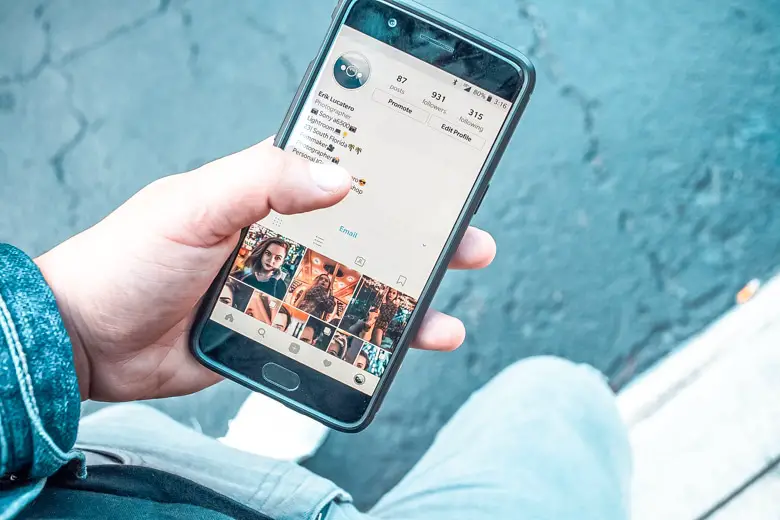
That’s why 7 day social media detox was so important for me to do. Checking out other people’s Instagram Stories and profiles, refreshing it all the time, hoping that I’d find something new there was overwhelming. Every time I couldn’t go on Instagram, I was getting anxious and curious about what others were doing. It became a little obsession of mine after a while.
Limiting time spent on social media is for sure one of the best things you can do to minimize FOMO, as you’re removing the root of the problem.
Make a list of things you’re grateful for
Keeping a gratitude journal has many advantages. It’s also one of the best ways to keep yourself grounded and remind yourself that your life isn’t as bad as you might think it is. Sure, you might work your ass off every day and live in a crappy place, but remember about the things you’re grateful for, like your kids, family, or experiences, no matter how big or small they are.
Focus on a new hobby
Dealing with FOMO can be hard, especially if you have nothing else to focus on. That’s why it’s so vital to find a hobby or just a task that you’ll be able to focus on and keep your attention away from social media and other triggers. If you’re anything like me, it’s possible that you haven’t found time or motivation to keep up with your hobbies recently. 7-day social media detox is a perfect opportunity for regaining your control over your life and reclaiming your hobbies.
Connect with people around you
Internet made connecting with people easier than ever, but somehow it also caused a rise in cases of anxiety and depression. We often feel lonely even after hours spent on Facebook texting other people. Take this opportunity and invite your best friend for a coffee. Call your grandparents. It will make not only their days better, but you’ll feel more happy and fulfilled too.
Start writing a journal…
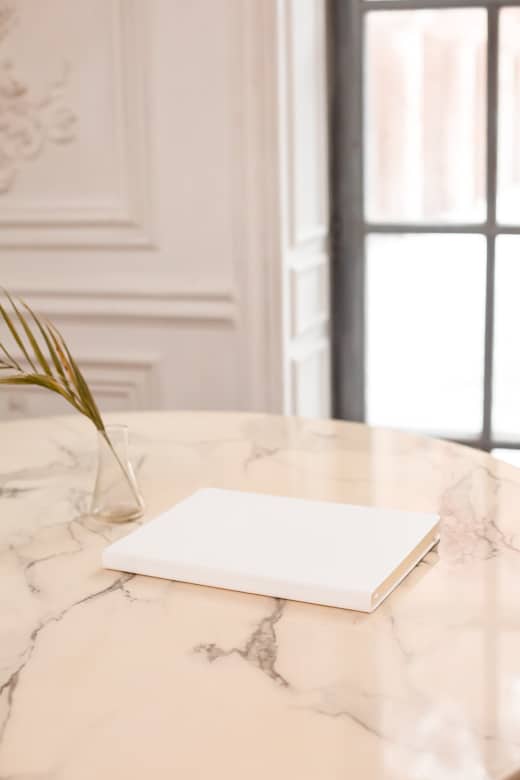
This might sound silly, but yes, keeping a journal might help you battle FOMO. This will help especially for people who love to share everything they do on social media. When you do 7-day social media detox, you might notice this urge to post something online, share what you ate for breakfast or show that beautiful place you found while wandering around your neighbourhood. Keeping a journal will give you an opportunity to “share” your thoughts, memories, and photos. It doesn’t matter if you decide to keep paper or digital journal, although the latter one would be easier to insert photos into your entries.
… or a blog
You can also start a blog where you’d share everything the same way you do on social media. It sounds counter-intuitive but hear me out. When you post on social media, you want other people’s attention to be focused on you.
While blogging is quite similar to posting on Instagram or Facebook, there’s no chance of getting attention or comments straight away. It will take time to be noticed even by Google. Just remember that even though nobody might read your blog right now, it doesn’t mean that it will always stay this way.
Everything you put on the Internet stays there forever, so be mindful of the photos or memories you share on there. Who knows, maybe this will be the start of something big.
My predictions going into social media detox challenge
I won’t lie to you. Part of me doesn’t believe I’ll make it to the end. I can’t imagine how I’m supposed to go through the day with spending no time on social media. I love checking what other peoples are on to, and it will be very difficult to stop doing that suddenly. Instagram became a distraction I’d happily use when every time I have a free minute or just feel bored, so I’ll really miss it.
My 7 day social media detox in a glance
Day 1
It felt very weird to uninstall all social media apps. That included Instagram, Facebook, TikTok, Snapchat, Discord, and Twitter. Even though I didn’t use some of them, I uninstalled them to remove any temptation. I use YouTube mostly to listen to lofi music when I’m working, so I decided to leave it.
At some point I caught myself thinking about changing rules of this detox and do it gradually, just so I could have access to Instagram for a little longer. That showed me the extent of my problem with this platform. I resisted the temptation and I’m proud of myself for doing that. I tried to find any app to scroll through multiple times throughout the day, and I was getting nervous when I couldn’t find any.
After first 24 hours I was quite content and realized that spending a day with no social media wasn’t so bad after all. It didn’t tempt me to re-download them anymore.
Thing that surprised me the most was my sudden spark of creativity. I haven’t taken any photos with my camera for almost three years and here I was, getting ready to do a small photoshoot by the sea. Unfortunately, thick fog made it impossible, but it’s the thought that counts, isn’t it?
Day 2
I didn’t miss Instagram, and I already felt like my mind was clearer. It didn’t stop me from looking for the app, as I missed checking out Instagram stories, and wanted to scroll mindlessly for a while. When I didn’t find it on my phone, I read a book instead.
At some point during the day, I also wanted to look for an accountability group on Facebook and it made me realize how reliant I was on this service. I didn’t know where I could find what I was looking for.
Instead of forcing myself to work in the evening, I binge watched YouTube. I consider as a win, especially because I have a huge trouble setting up boundaries I’d follow and I always try to do anything blog-related in the evenings (which is more like pretending to be productive and just waiting my time). Watching YouTube was a very welcomed distraction. I didn’t feel guilty about it either, which surprised me a lot.
Day 3
The third day was harder to get through. I love spending evenings in a hot bath scrolling mindlessly through Instagram, TikTok, and “getting inspired”. Urge to check Instagram was very strong today. Refreshing feed Slack multiple times, and hoping to find new messages, made me feel more defeated.
I’ve noticed that my mind was feeling more and more clear with each day that I didn’t spend on social media. I stopped worrying about the fact that my life isn’t so perfect and organised too.
Day 4
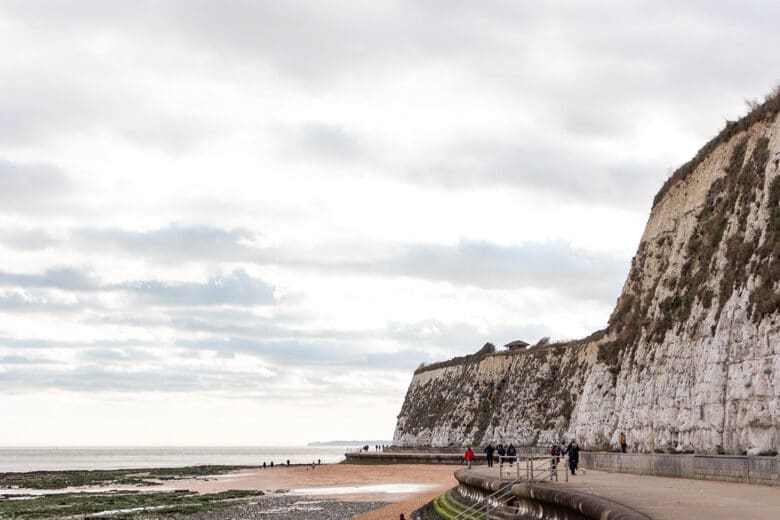
That was the best and craziest day so far. We went on a family walk and did almost 17 kilometres on foot. It was truly one of the best things that happened to me in the last couple of months. I caught myself thinking about photos I could take to share on my Instagram Stories. Since I didn’t have the app, I was forced to stay in the moment and keep it to myself. Blog post about our walk from Ramsgate to Margate is coming very soon though!
That was very refreshing and much needed experience. Otherwise, I didn’t miss any of my social media apps. I felt lighter and my mind was much clearer.
Day 5
Fifth day was much worse that the third one. I’m not sure what happened, but suddenly I felt a powerful urge to check one or two people on Facebook and I couldn’t focus on anything because of that. I went on Facebook for two minutes or so and I really felt like I failed the entire challenge.
Day 6
I’ve decided to cut my challenge short and reinstalled Instagram and Snapchat. After watching stories, checking posts from people I follow, I realized I don’t know why I was so tempted to go back there. It just made me feel very stressed out and overwhelmed after a minute or two spent on Instagram. I hated it.
In the evening, I checked my daily stats, and I realized that somehow I spent 11 minutes on Instagram, not a few seconds like I believed. I don’t actually remember doing anything that would take so much time. This, and feeling so bad mentally, prompted me to delete the app once again, and continue with the whole social media detox, hoping that I’ll last until the end of the month.
I realized that even though detox made me feel better; it didn’t mean that I had the whole situation under control. Reinstalling Instagram showed me I have no self-control when it comes to social media and I lack boundaries. I started thinking that the app is toxic as a whole, which isn’t actually true. We choose who we follow and how we spend time there. The app is just a tool.
Day 7
I was so optimistic suddenly. It didn’t last for long, though. I wanted to re-download Instagram really badly already in the afternoon. It was so painful to stay away from it. For the first time in months, I went on Reddit and wasted a lot of time there. That was something I didn’t expect at all when I started this 7-day social media detox. I don’t use Reddit at all, unless I’m looking for something specific. At the end of the day, I decided that there’s no point in trying to continue this challenge for longer.
Coming back after 1 week social media detox
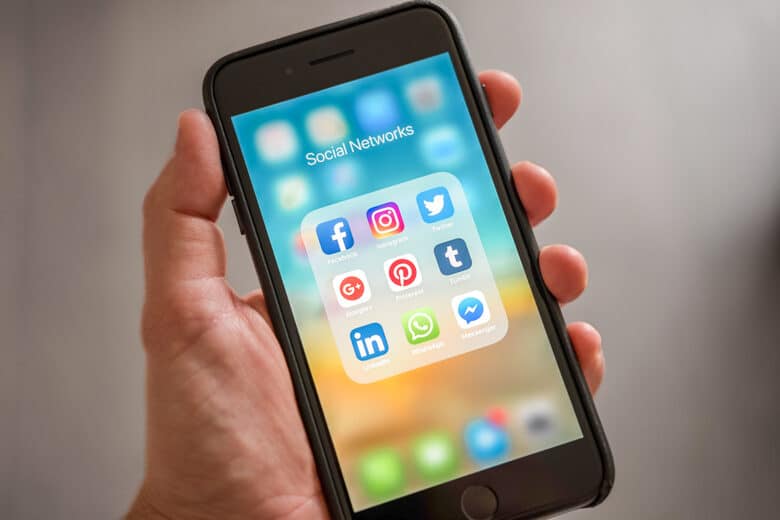
The only app I installed back was Instagram. Yeah, that was predictable. Strong urge to post anything disappeared though, and I don’t think about sharing my daily life as often as before. Honestly, who cares? Who noticed that I was gone for the entire week? Yup, no one and I don’t feel bad about it.
My memories and experiences will stay with me. They’re mine and nobody else has to see them in order to make them valuable or important. 7 day social media detox gave me a lot of food for thought and made me realize that I’m addicted not to my phone like I thought before, but to social media.
I know I need to make some changes in the way I’m dealing with boredom, spend my free time, and of course, I need to work on my mindset. I went into this challenge not believing in myself and my capabilities and that’s might why I didn’t last without social media until the very end. My mindset played an even bigger role in this than I’d like to admit.
How detox influenced my screen time
Screen time didn’t go down drastically during this week, mostly because instead of spending time on social media, I was spending more time making notes and stuff like this. I spent 1h29m on average on my phone, with the highest 2h10m and the lowest 47minutes. It gives 32% less screen time compared to the week before that. Week after I ended my social media detox challenge, I spent 2h7m on average on my phone (42% more time than during the detox), with the highest 2h38m and the lowest 1h39m.
No social media for a month
I’m still toying with the idea of ditching social media for the entire month BUT I don’t think I’ll be able to go cold turkey on it. I’m jealous of people who can do that, but unfortunately I’m not one of them. For now, I’m reinforcing social media free mornings, evenings, and weekends and set 20-minute limits during the rest of the week.
And you know what? I don’t miss it that much anymore.
I’m not even sure what I saw on this platform. Without 20-minute limits and notifications reminding me how much time left, I’d spend there an hour or so without blinking. Time watching stories and scrolling through feed flies by as fast as it never did before. That’s so crazy. And it’s not even as I did anything productive on there. I just mindlessly watched other people’s highlights of their lives.
Setting boundaries helps me keep my mind clearer, stay focused, and be more creative.
Two weeks after 7 day social media detox – my thoughts
I still haven’t re-installed other apps that Instagram, and I don’t use Facebook on a daily basis anymore. In the past, I always kept tab open in my browser, which led to checking every notification I received. None of them was really important or worth wasting my time on it, but they always led to me scrolling through the feed and wasting hours on there.
I used to spend most of the time on my computer scrolling through it instead of working, which honestly was my biggest pet peeve. I don’t keep any social media websites opened and turned off all the notifications, both in my web browser and on my phone.
Do I think I lost the challenge? Hell no! I learned a lot during this challenge and seeing how I reacted to having no access to social media gave me a much needed push to set up some boundaries.
Let me know if you’d like to know anything more about 7 day social media detox. I’d recommend it to everyone, especially in today’s age, when social media causes so many mental health issues.
Have you ever thought about doing any type of social media detox? Have you done any?
Pin it for later!
